
话题引入
在句子When deeply absorbed in work, which he often was, he would forget all about eating or sleeping. 中,which指代的对象为?
01
定语从句中关系词可以指代非名(代)词成分或非句子(分句)吗?
答案是肯定的,这和中学阶段的说法不太一样。“定语从句(Attributive Clause)”这一术语暗示:该从句修饰的对象是名词性的,功能上作定语,因而关系词的指代对象就局限在名词或者所谓的句子上了。实际上这个术语有很一定的限制,我们可以用“关系分句(Relative Clause)”这一术语代替定语从句。
1.1 关系分句简介
在章振邦等所著的《新编高级英语语法》中,有如下论述:
She is the woman who lives next door to us. 关系分句作以上用法时,当然可以叫做”定语从句”。可是关系分句除作名词修饰语外还可以起其他作用,比如起状语分句和并列分句的作用,如果把这种分句的其他用法也视为“定语”,则名不符实。
章振邦,《新编高级英语语法》,p15
[1]In 1906, however, Pierre, who was crossing a road, was run over and killed.句[1]中的who was crossing a road相当于when he was crossing a road,因此起时间状语作用;
章振邦,《新编高级英语语法》,p15
[2]But he would have to be careful not to offend Crass, the foreman, who could give him the sack at any time. 句[2]中的who could give him the sack at any time相当于because he could give him the sack at any time,起原因状语的作用。
章振邦,《新编高级英语语法》,p15
非限制性关系分句,就其意义来说,在句中有时相当于一个并列分句,例如:
He likes reading, which I am glad to hear. (=He likes reading, and I am glad to hear that.)
章振邦,《新编高级英语语法》,p641
可以得出结论:“定语从句”是从功能上描述某一分句,而关系分句则是从结构上描述某一分句。传统语法中的定语从句作定语,而一般认为只有名词才有定语,故其修饰的对象被限制,而关系分句则不存在这种限制:关系词通过充当主句和“关系分句”的桥梁,使二者建立起某种关系。章振邦把关系分句分成了几大类,其中形容词性关系分句和中学教学语法中的定语从句基本上等价。
形容词性关系分句,简称”形容词性分句”(adjectival clause),也就是传统语法中所谓的”定语从句”(attributive clause)。
章振邦,《新编高级英语语法》,p635
那么,定语从句或者关系分句中,关系词真的能够指代非名词成分么?或者先行词的种类有哪些?本文接下来的将围绕这一话题展开详细的查证。
1.2 先行词的种类
1.2.1 章振邦的观点
在其所著的《新编高级英语语法》中,有如下论述:
有时关系词所指也可能仅是上文分句或句子中的部分内容。
章振邦,《新编高级英语语法》,p637
他举了下面这样一个例子:
Looking westward across the great continent toward sunset, I knew that I had better get up and go back to the lavatory. Which I did. 在这里,which仅指上文that-分句的述谓部(predication)—get up and go back to the lavatory。由此可见,关系代词的所指范围要根据具体上下文而定,绝非总是指代一个名词。所以我们不采用”先行词”这一传统译名,而给予一个比较灵活的译名—“先行项”。
章振邦,《新编高级英语语法》,p637
根据章振邦的看法,关系(代)词指代的对象可以是句子中的部分内容。不过这个部分内容到底有哪些,他没有进一步阐述,另外对于该关系分句如何还原,也没有进行展示。为何关系分句中要有did,将在本文的第03部分解释。后文均用”先行项”代替“先行词”这一术语。
1.2.2 张满胜的观点
在其所著的《英语语法新思维:定语从句超精解》及《底层逻辑全解密》全解密中,张满胜对which所指代的先行项做了如下分类:
综上所述,在所有的关系词中,which所指代的先行词的形式结构最复杂。具体来说,which可以指代:1)名词短语;2)代词(主要是that或those);3)谓语短语;4)非谓语短语;5)从句;6)主句 7) 指代不明 8) 形容词(短语) 9)副词最高级
张满胜,《英语语法新思维:定语从句超精解》,p71;《英语语法新思维:语法体系及底层逻辑全解密》,p371
以下简要罗列他书中提到的可做先行项的类型:
1.名词短语: Anger is a wind which blows out the lamp of the mind.在本句中,which指代a wind这个名词短语。
2.代词: That which was bitter to endure may be sweet to remember. 这里先行词是that,关系代词which指代that。
3.谓语短语:a. He runs a mile each morning, which would bore me.本句中which指代前面的整个谓语内容runs a mile each morning。b. I became a single mother overnight, which is nothing like becoming famous overnight.这里which指代主句的谓语部分became a single mother overnight这个短语。c. He plays basketball, which I don’t.本句中which指代主句的谓语内容plays basketball,同时which又构成定语从句的谓语内容。
4.非谓语短语:a. He likes climbing mountains, which is a good exercise.(他很喜欢爬山,这可是一项好的运动。)本句中which指代主句中climbing mountains这个动名词短语b. The owner of the cinema needed to make a lot of improvements and employ more people to keep it running, which meant spending tens of thousands of pounds.本句中,which指代to make…and (to) employ…running这个不定式短语。c. When deeply absorbed in work, which he often was, he would forget all about eating or sleeping. 这里which指代前面的非谓语短语——过去分词短语deeply absorbed in work.
5.从句: Someone said that I took the books, which was not true.本句中,which指代宾语从句that I took the books。
6.主句: Things then improved, which surprises me. 这里which指代一个主句things then improved。
7.指代不明: a. Giraffes have a distinct way of walking, which move both right legs forward and then both left legs. 一方面,从句法结构来看,a句没有错,which指代复数名词giraffes,所以用了move而不是moves。这样一来,整个定语从句是修饰主语giraffes。但另一方面,从信息结构(information structure)角度来看,a distinct way of walking“独特的行走方式”是新信息,是全句突出强调的语义重心。
8.形容词(短语): This is the closest (that) we can get to the beach by car. 定语从句改为简单句就是: We can get close to the beach by car. 这里的closest是形容词,在主句中作表语,同时在逻辑语义上充当定语从句的表语,来自短语get close to。
9.副词最高级: Next Monday is the soonest (that) we can deliver. 这里的soonest是时间副词,在主句中作表语,同时在逻辑语义上充当定语从句的时间状语。
可以看出,某个关系分句的先行项(which所指),远不止中学阶段包括的”名词和句子”。另外,张满胜明确指出,本文讨论的句子中which指代对象为分词短语“deeply absorbed in work”。
1.2.3 张克礼的观点
张克礼认为:
[1]He walks for an hour each morning, which would bore me.
[2]Bill said he would win the match, which he did. 句[1]中which指代walks for an hour each morning,句[2]中which指代win the match。
张克礼,《新英语语法》,p430
另外,张克礼认[1],[2]语义上分别等于[3],[4]:
[3]He walks for an hour each morning, and that would bore me.
[4]Bill said he would win the match, and he did so.
1.2.4 赵俊英的观点
[1]They say he plays truant, which he doesn’t.
(先行词为plays truant)
[2]Mary was always diligent in her work, which her brother seldom was.
(表语diligent…work为先行词)
赵俊英,《现代英语语法》,p1239
1.2.5 徐广联的观点
先行词可以是一个单词,如名词、代词、形容词;也可以是短语,多为名词短语,也可以是动词短语等;还可以是分句、句子或几个句子所表达的意思。
徐广联,《当代高级英语语法》,p901
例如他认为,在句Jim is generous, which Jack will be. 中,which指代的对象为generous。
1.2.5 李基安的观点
在其所著的《现代英语语法》中,李基安将先行项(antecedent)分为两大类,一类为名词性先行项(Nominal Antecedent),另一类为非名词性先行项(Non-Nominal Antecedent),而非名词性先行项又分为三类:
a. 分句先行项(Clause as antecedent)
b. 动词短语先行项(Verb phrase as antecedent)
c. 表语形容词先行项(Predicative adjective as antecedent)
第一类“clause as antecedent ”也就是中学阶段所熟悉的“前面主句”做先行项;第二类“verb phrase as antecedent”,即动词短语作先行项;第三类则是“predicative adjective as antecedent”,可译为表语形容词(与定语形容词对应)作先行项。第三类非名词先行项与本文讨论主题的关系最为密切,因为deeply absorbed in work不仅可以看作过去分词短语,也可以看作形容词短语(absorbed有形容词性)。
例如在以下例句中,先行项为dances well,属动词短语先行项:
She dances well, which I don’t.
而在下面这个例句中,先行项为tall,属表语形容词先行项:
Nick is tall, which I will never be.
1.2.6 Huddleston等人的的观点
Huddleston等在《剑桥英语语法(THE CAMBRIDGE GRAMMAR of THE ENGLISH LANGUAGE)》一书中,给出了如下例句:
a. I simply can’t design it myself.
b. He told me to design it myself, [which I simply can’t].
a. I called the police immediately.
b. They advised me to call the police, [which I did].
他们认为,先行项就是被关系词化(relativised)的元素。例如在句子[ib]He told me to design it myself, which I simply can’t。被关系词化的元素就是design it myself.而在句[iib] They advised me to call the police, which I did。中Huddleston指出,which I did的先行项是[iia]句中被关系词化的谓语部分,即call the police。
1.2.7 Randolph Quirk等人的观点
Quirk等在其所著的《现代英语英语(A Comprehensive Grammer of the English Language)》中提到,关系分句可以回指分句的谓语或述谓成分(the predicate or predication of a clause)。例如,以下两个例句的先行项分别是plays truant和walks for an hour:
[1] They say he plays truant, which he doesn’t.
[2] He walks for an hour each morning, which would bore me.
02
本文所讨论的句子中,which为何不能指代任一句子(分句)?
2.1关系词指代先行项是一种意义上的指代
首先我们考察一个关系分句的还原:The sun heats the earth, which makes it possible for plants to grow.
这里which指代The sun heats the earth。但是如果在还原关系分句时,简单地把which换成The sun heats the earth,会写出这样一个句子:
*The sun heats the earth makes it possible for plants to grow. 显然这是个错句,应该加上that,处理为:
That the sun heats the earth makes it possible for plants to grow.据此,我们可以得到一种思路:尽管which指代The sun heats the earth,但在还原关系分句时,并不能把二者简单地划等号,而需要作一定的变换。which指代先行项只是一种意义上的指代,不要求语法形式完全统一,例如我们应该说which指代the sun heats the earth这件事或者这个事实。汉语同英语相比,无论指派为哪种词组,基本上采用零标记(没有形式上的变化),也因此造成了汉英形式上重大的差异。这种需要变换的思路,其实也在其他关系分句中体现:如在句The man who fixed the radio left the note. 中,who指代的对象为man(《新编高级英语语法》P637有相关论述)。还原该关系分句时,可以发现,如果把who单纯地还原为man,就会出现以下错句:*Man fixed the radio. 显然,单数名词man在这里缺少限定词。这再次说明,关系词指代先行项,是一种意义上的指代。又如Randolph Quirk书中的例句He walks for an hour each morning, which would bore me. which指代对象为walks for an hour each morning,但将该关系分句还原时,要变换为不定式短语,即:To walk an hour each morning would bore me.
2.2 which在本文所讨论的句子中,不能指代句子的原因
现在回到本文讨论的句子:When deeply absorbed in work, which he often was, he would forget all about eating or sleeping. 无论which指代哪个”句子”,均是错误的。因为关系分句的谓语动词是was,属于系表结构,表语的性质是被赋予主语he的(与he”划等号”,即意义上要匹配),在本句中,he无论如何不可能和下述a, b, c三句中任何一句划等号,因为he不可能是一件事或者一个事实。
a. When (he was) deeply absorbed in work
b. He would forget all about eating or sleeping
c. When deeply absorbed in work, he would forget all about eating or sleeping.
如果要使which指代整句话,必须对原句进行改写,例如:
When deeply absorbed in work, he would forget all about eating or sleeping,which/as was often the case. 此时可以认为which/as指代When deeply absorbed in work, he would forget all about eating or sleeping,which/as was often the case. 整句,因为”When deeply absorbed in work, he would forget all about eating or sleeping, which/as was often the case. “意义上可以是”the case”,即一种情况。这个观点也得到了Word Reference论坛母语者的支持:
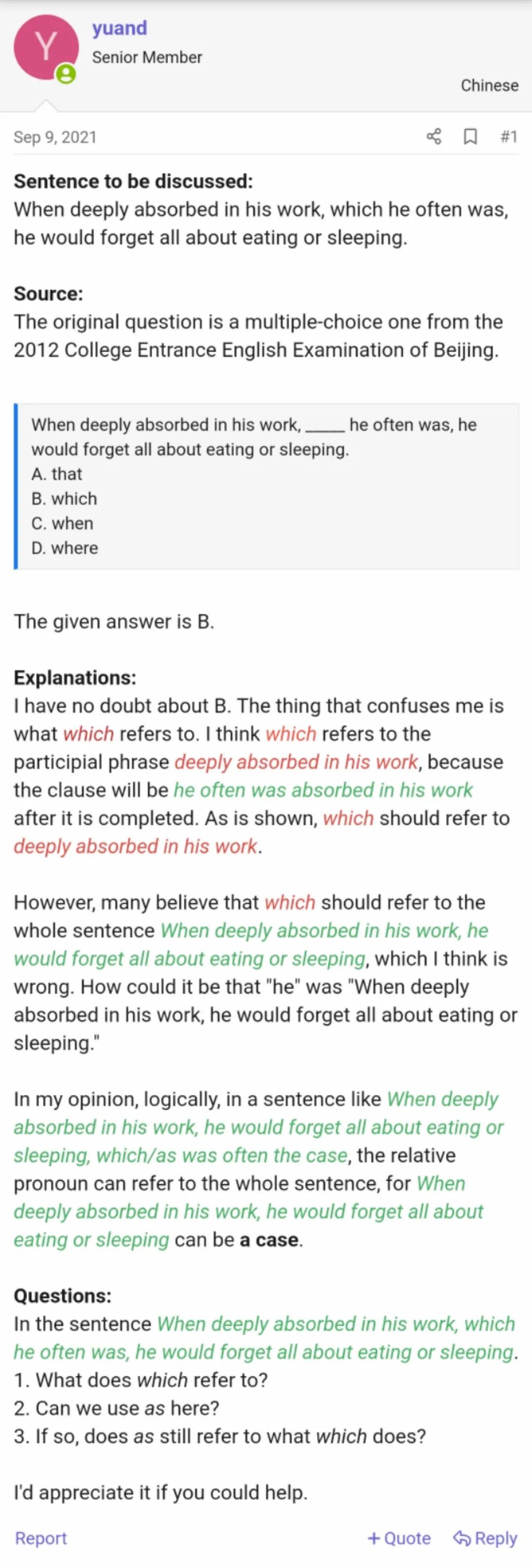
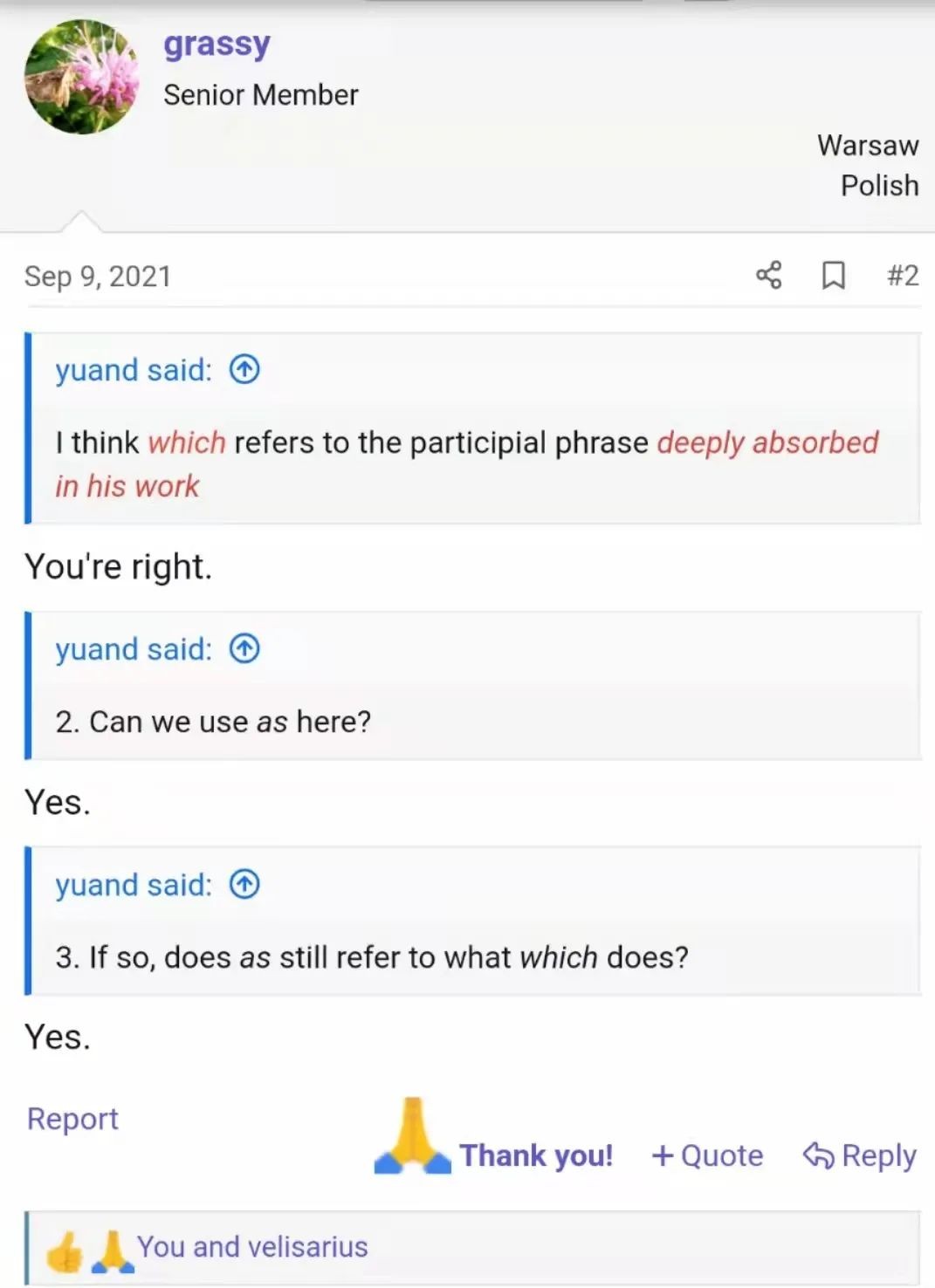

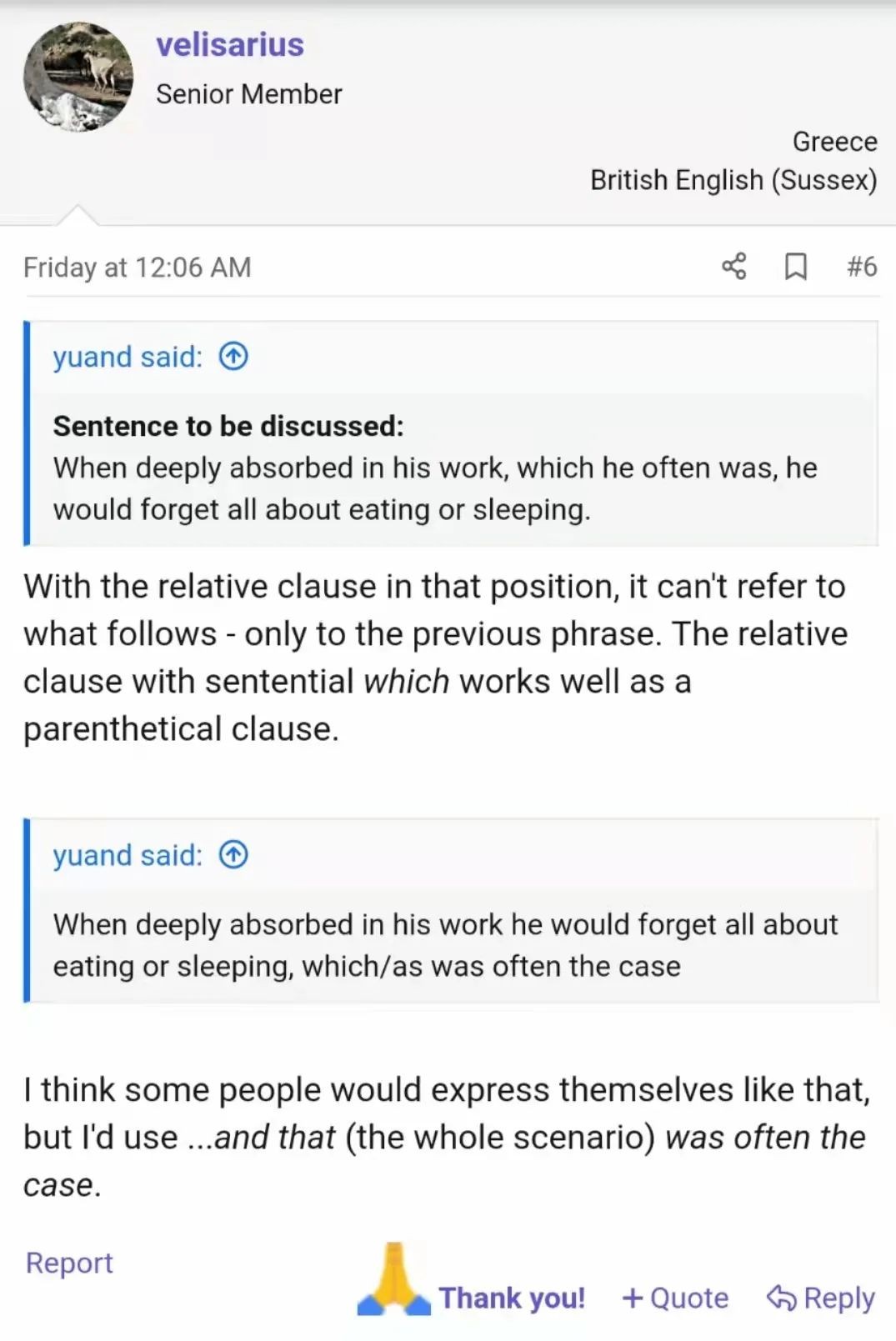
03
对某些关系分句含有助动词的解释。
首先观察一个简单的例句:I advised him to call the police, which he did immediately.
此处关系词which指代call the police。为何关系分句中有助动词did,解释如下:分析整句可推出,句中的he确实打了电话报警,所以可以造出一个句子:
a. He called the police.现在把谓语动词called分离出屈折词素,即called=did call,可以造出另一个句子:
b. He did call the police. 现在把call the police关系词化,用which替换可得He did which,再提前,即可得出第三个句子:
c. which he did.
如果要在关系分句中表示出call the police是立刻发生的,就会得到第四个句子:
d. which he did immediately.
以上四步解释了为何关系分句which he did immediately.中出现了助动词did。而一定要有助动词,是因为只有这样关系分句在形式上才是一个包含“主谓”结构句子。
04
结论
4.1开篇问题的答案
讨论至此, 句When deeply absorbed in work, which he often was, he would forget all about eating or sleeping.中which指代的对象——deeply absorbed in work——无疑非常明确了。
4.2定语从句这一术语的局限
我们看到,“定语从句(Attributive Clause)“这一术语存在一定的局限,有窄化其内涵的嫌疑。在本文完成时,笔者在朋友的协助下,查询了英美主流的语法著作,并未发现“Attributive Clause”作为一个单独的术语而出现,这类从句对应的英文名称均为“Relative Clause”。不过在苏联甘希娜(Ganshina)所著的《英语语法(English Grammar)》中,提到了“Attributive Clause”.可能国内教学语法中的“定语从句”就是从苏联语法书翻译过来的。不过即便如此,在“非限制性定语从句”——甘希娜称之为“Descriptive Clause”——中,which的先行项,也可以是形容词(adjective-predicative):
Which may have as its antecedent an adjective-predicative; such clauses are always descriptive:
甘希娜,《英语语法》,p336
书中还给出了两个例句:
[1]She is very attentive at her lessons, which he rarely is.
[2]He was very fond of reading, which his brother never was.
显然,[1],[2]的先行项分别为attentive (at her lesson),fond (of reading).
4.3 which可以指代的先行项的种类
由以上讨论可知,which可指代的先行项是多样化,除了常见的名词、代词和“主句”,还可以指代很多其他的部分,例如本文谈到的分词短语/形容词短语。对此,张满胜做了比较完善的论述(见本文1.2.2节)。
05
练习
请思考此句中which的指代对象:If the air you’re breathing is clean—which it would be if you’re away from the smog of cities—then the air is filled with life-giving, energizing oxygen.










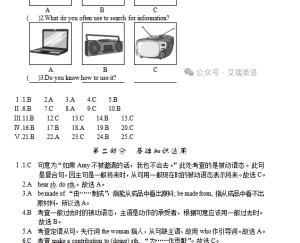
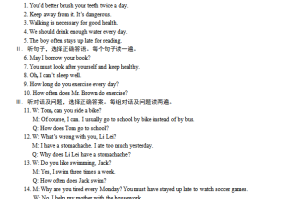


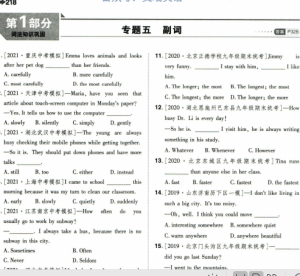
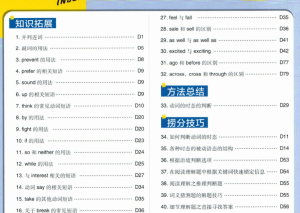
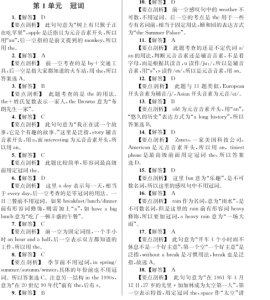
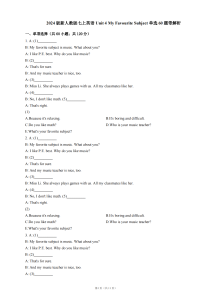

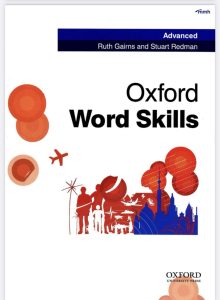
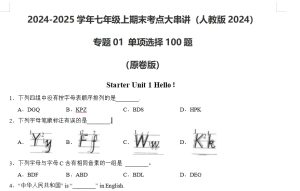
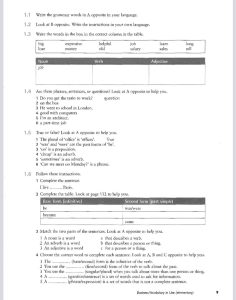



暂无评论内容